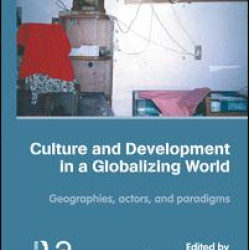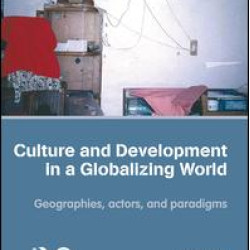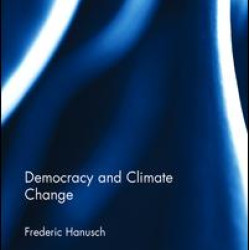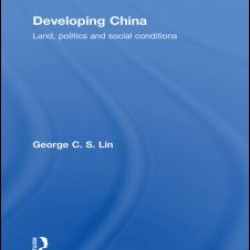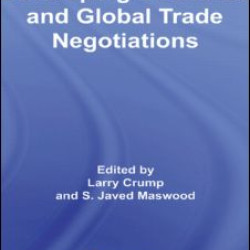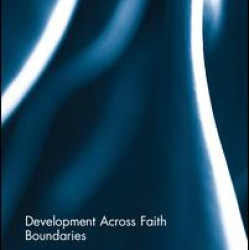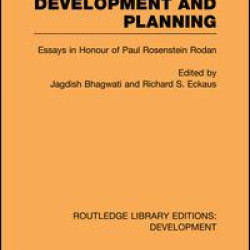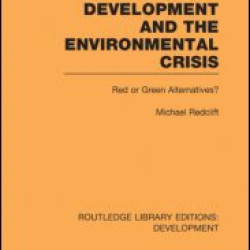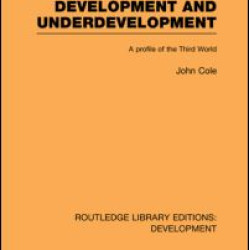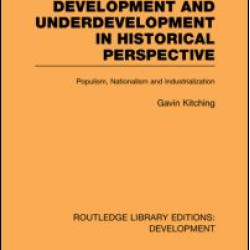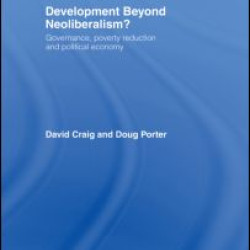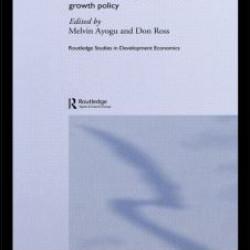Development Studies
Brand: Taylor & Francis
Model: Stock
Using recent research on development projects, conceptual overviews and case studies, this informative book argues that culture has become an explicit tool and framework for development discourse and practice...
₹9,914.40 ₹12,393.00
Brand: Taylor & Francis
Model: 9780415348775
Using recent research on development projects, conceptual overviews and case studies, this informative book argues that culture has become an explicit tool and framework for development discourse and practice...
₹3,083.74 ₹3,854.68
Brand: Taylor & Francis
Model: 9780415371162
This book demonstrates that overall stronger democratic principles and democratic qualities tend to correlate with improved climate performance. Beginning by outlining a general concept of democratic efficacy, the book provides an empirical analysis of the influence of the quality of democracy on cl..
₹7,344.00 ₹9,180.00
Brand: Taylor & Francis
Model: 9780415413220
Following the phenomenal growth and structural changes of the Chinese economy, George C.S Lin examines the important contribution of China's land as a factor of production in both a rural and urban context...
₹8,812.80 ₹11,016.00
Brand: Taylor & Francis
Model: 9780415417341
This book brings together an international team of leading academics and researchers to explore the main issues of the Doha Round trade negotiations...
₹8,812.80 ₹11,016.00
Brand: Taylor & Francis
Model: Stock
Increasingly, faith-based organisations (FBOs) work with a wide range of partners, both within and outside their own faiths. Development Across Faith Boundaries explores the dynamics of activities by local or international FBOs which cross faith boundaries, whether with their partners, donors or rec..
₹8,812.80 ₹11,016.00
Brand: Taylor & Francis
Model: Stock
First published in 1972, this is a book of essays offered in honour of Paul Rosenstein-Rodan, the distinguished economist whose career started in mid-1920s Vienna and subsequently spanned Europe, Britain, the USA and many of the less developed countries of the world._x005F_x000D_
..
₹2,643.10 ₹3,303.88
Brand: Taylor & Francis
Model: Stock
First published in 1984, Michael Redclift’s book makes the global environmental crisis a central concern of political economy and its structural causes a central concern of environmentalism...
₹8,078.40 ₹10,098.00
Brand: Taylor & Francis
Model: Stock
Initially published in 1987, this work deals with crucial aspects of development, including disparities in global patterns of production and consumption. John Cole examines the exhaustion of non-renewable resources and the destruction of the natural environment and, on the potentially positive side,..
₹8,078.40 ₹10,098.00
Brand: Taylor & Francis
Model: Stock
How do the intellectual origins and historical background of western and other theories of development affect their relevance to contemporary Third-World conditions? This is the central question behind Gavin Kitching’s examination of ‘development studies’, first published in 1982, from its origins i..
₹8,812.80 ₹11,016.00
Brand: Taylor & Francis
Model: 9780415319591
This book is among the first to take the poverty reduction paradigm as its central focus. Offering a comprehensive introduction, overview and critique, it traces the emergence of the framework and illustrates its consequences with global case studies...
₹10,281.60 ₹12,852.00
Brand: Taylor & Francis
Model: Stock
The new economy is characterized in the developing world by open capital markets and coordinated international regulation - neither of which existed in the colonial period...
₹3,083.74 ₹3,854.68


